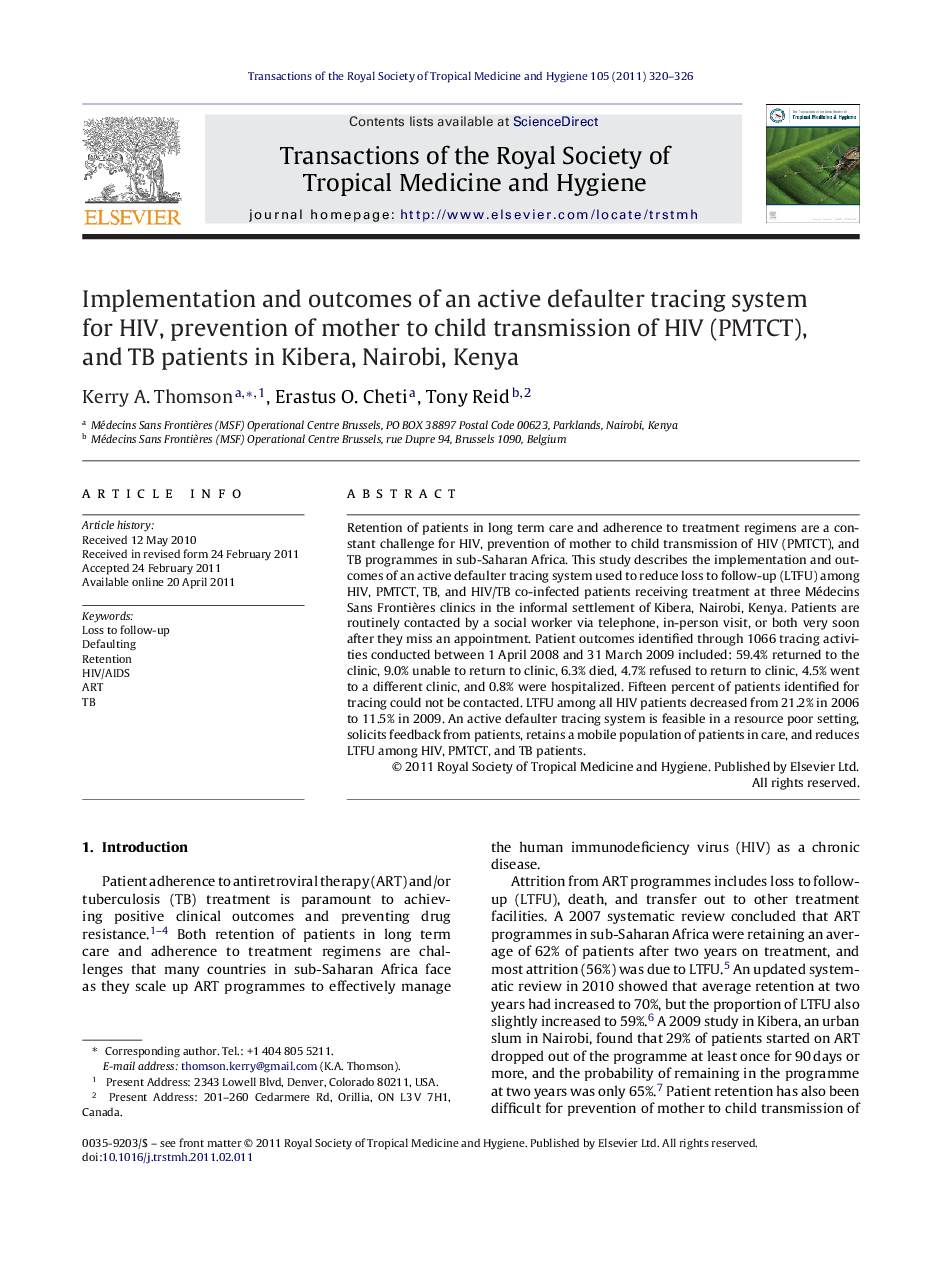| Article ID | Journal | Published Year | Pages | File Type |
|---|---|---|---|---|
| 3420524 | Transactions of the Royal Society of Tropical Medicine and Hygiene | 2011 | 7 Pages |
SummaryRetention of patients in long term care and adherence to treatment regimens are a constant challenge for HIV, prevention of mother to child transmission of HIV (PMTCT), and TB programmes in sub-Saharan Africa. This study describes the implementation and outcomes of an active defaulter tracing system used to reduce loss to follow-up (LTFU) among HIV, PMTCT, TB, and HIV/TB co-infected patients receiving treatment at three Médecins Sans Frontières clinics in the informal settlement of Kibera, Nairobi, Kenya. Patients are routinely contacted by a social worker via telephone, in-person visit, or both very soon after they miss an appointment. Patient outcomes identified through 1066 tracing activities conducted between 1 April 2008 and 31 March 2009 included: 59.4% returned to the clinic, 9.0% unable to return to clinic, 6.3% died, 4.7% refused to return to clinic, 4.5% went to a different clinic, and 0.8% were hospitalized. Fifteen percent of patients identified for tracing could not be contacted. LTFU among all HIV patients decreased from 21.2% in 2006 to 11.5% in 2009. An active defaulter tracing system is feasible in a resource poor setting, solicits feedback from patients, retains a mobile population of patients in care, and reduces LTFU among HIV, PMTCT, and TB patients.
